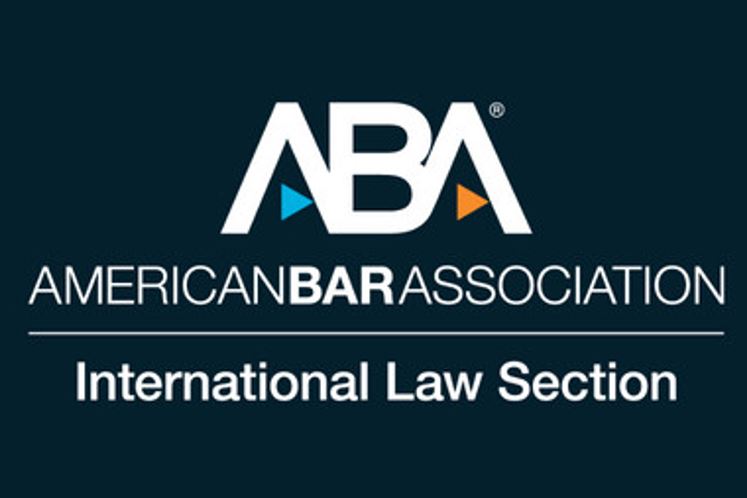I. Can allegations of corruption serve as a bar to jurisdiction of arbitral tribunals or admissibility of claims?
Under Cameroonian arbitration law, the arbitration agreement is independent of the main contract, which means that its validity is not affected by the nullity of the main contract. Thus, an allegation of corruption relating to the subject matter of the main contract is no obstacle to the appointment or jurisdiction of the arbitrator, who is appointed based on an autonomous agreement – the arbitration agreement.
Based on the principle of competence-competence, the arbitral tribunal has the sole jurisdiction to assess its own jurisdiction, once the parties have decided to submit their dispute to arbitration by means of an arbitration agreement. Thus, should the dispute arise, the arbitral tribunal becomes the sole authority competent to rule on all matters relating to the dispute, including questions related to its jurisdiction.
Allegations of corruption therefore do not constitute an obstacle to the jurisdiction of arbitral tribunals or to the admissibility of claims, as these are examined by the arbitral tribunal.
II. Can allegations of corruption affect the validity of an arbitral award?
Under Cameroonian law, an arbitral award can be annulled in instances where (i) the arbitral tribunal has ruled without an arbitration agreement or on the basis of a void or expired agreement; (ii) the arbitral tribunal was improperly constituted or the sole arbitrator was irregularly appointed; (iii) the arbitral tribunal failed to comply with its assigned mission; (iv) the principle of adversary proceeding has not been respected; (v) the arbitral tribunal has violated a rule of international public policy; and (vi) the award does not state the reasons on which it is based.
In case where there is an allegation of corruption, this may constitute, in accordance with Cameroonian arbitration law and practice, a violation to international public policy, which is a ground for setting aside an arbitral award.
III. In annulment or enforcement proceedings, can the court review the award and the merits to determine whether corruption or related offences affect the underlying dispute?
In the event of recognition of an arbitral award, national courts do not examine the merits of the dispute. Their role is limited to verifying that the award complies with international public policy. In this regard, the court cannot verify whether corruption or related offences affect the underlying dispute.
An arbitral award may also be set aside or recognized before the national courts. In the event of the setting aside of an arbitral award, courts are not required to re-examine the merits of the dispute. However, if the award is set aside, a party may refer the case to arbitration before a new arbitral tribunal.
IV. Can courts review corruption allegations which have not been raised in the arbitration?
During a setting aside proceeding, the judge may raise an irregularity of his or her own motion if the facts of the case point to the existence of such an irregularity. However, the judge is under no obligation to seek out the applicable opening cases, except where the irregularity in question is a breach of international public policy.
V. Do courts defer to the arbitral tribunal’s finding that no corruption acts were committed?
In Cameroon, the event of the setting aside of an arbitral award, and except where the said setting aside is because the arbitral tribunal ruled without an arbitration agreement or on a null and void or expired agreement, it is up to the most diligent party to initiate, if it so wishes, new arbitration proceedings.
The judge who sets aside the arbitral award does not replace it with a new decision. So, he or she only rules on the grounds to set aside the arbitral award and other irregularities but does not replace the arbitral award. It is left for the most diligent party to initiate another proceeding on the merits following the setting aside judgment.
VI. Is there a standard of proof used by arbitrators and reviewing courts to assess the existence of corruption?
In Cameroon, the standard of proof imposed by the law governing arbitration is “legally admissible means” evidence necessary to resolve the dispute.
Regarding the existence of corruption which can be a ground for setting aside an arbitral award, a criminal action can be initiated. In such a case, the said criminal suit will have to obey criminal procedure rules of evidence. Should the action which will result in the setting aside of the arbitral award be initiated under the purview of criminal law, the standard of proof will be “beyond all doubts” to determine whether there is sufficient ground to apply a sanction.
VII. Which method do arbitrators and reviewing courts employ to establish evidence of corruption?
Under Cameroonian law, corruption falls under the exclusive jurisdiction of courts; therefore, arbitral tribunals are not entitled to rule on corruption and related offences.
The evidence of corruption is established in accordance with criminal procedure rules. The methods employed by courts to establish evidence of corruption generally include the following approaches: the examination of documentary evidence, testimonial evidence, technical expertise, internal or external investigations/inquiry.
VIII. Are arbitrators seated in your jurisdiction bound by criminal proceedings on issues that could impact the underlying arbitration dispute?
Criminal offenses are non-arbitrable thus, arbitral tribunals as well as arbitrators lack jurisdiction to rule over them.
The Cameroonian arbitration law does not specifically provide for the stay of arbitral proceedings until any ongoing criminal rules over the issue at stake. However, taking into consideration that arbitration is autonomous in nature and falls outside the ambit of the traditional judicial structure, we may conclude that the arbitral tribunal is not bound by any criminal proceeding or ruling, therefore it may not have to stay proceedings in the event of an ongoing criminal proceeding.
The parties to an arbitration agreement may decide that criminal proceedings related to the arbitral dispute will stay the ongoing arbitral proceedings.
IX. To what extent do they rely on or defer to findings from parallel criminal investigations?
In arbitration proceedings, the extent to which arbitrators rely on or defer to findings from parallel criminal investigations can vary based on several factors, including the jurisdiction, the nature of the case, and the specific rules governing the arbitration, etc.
Furthermore, while arbitrators may consider findings from criminal investigations, they typically do so within the context of their own procedural rules and evidentiary standards. The influence of criminal findings on arbitration decisions is not automatic but is assessed based on their relevance, credibility, and impact on the arbitration issues at stake.
X. Are remedies available when an arbitral tribunal rules that there is no evidence of corruption but subsequently a criminal ruling decides otherwise?
The available remedies on an arbitral award under Cameroonian arbitration law are setting aside, third party opposition, and review before the arbitral tribunal. No remedy is provided in case of contradiction between the arbitral award and a court ruling. Since the setting aside remedy is based on specific grounds, the adequate remedy in case of contradiction of an award and a court ruling would be a review.
Revision proceedings are initiated before the arbitral tribunal based on the discovery of a fact of such a nature as to have a decisive influence on the settlement of the dispute and which, prior to the making of the award, was unknown to the arbitral tribunal and to the party requesting revision. When the arbitral tribunal can no longer be convened, the application for revision shall be brought before the competent court in the State Party which would have had jurisdiction in the absence of arbitration.



